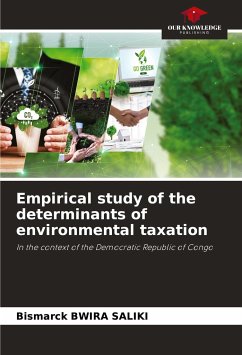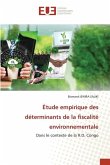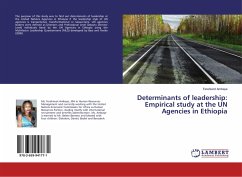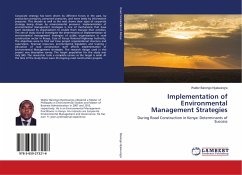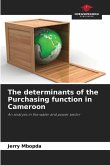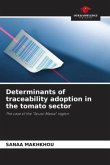We find that the determinants of environmental tax revenues vary according to the country's pattern of institutional and economic development. As we demonstrate, institutional enforcement in the form of the rule of law, as the DRC is a country with weaker institutions, does not benefit from the enforcement of the rule of law. The import of ICT goods characterized by rapid obsolescence is proving important. However, the relationship between environmental taxation and ICT imports is not significant for the DRC, given the lower income levels, ICT goods are not so easily scrapped and replaced by newer goods.Imports of non-ICT goods are negatively related to environmental tax revenues in the DRC. This result indicates the transfer of industrial production to other countries and the import of foreign-produced goods. As a result, environmental taxes on domestic markets are declining.
Bitte wählen Sie Ihr Anliegen aus.
Rechnungen
Retourenschein anfordern
Bestellstatus
Storno

